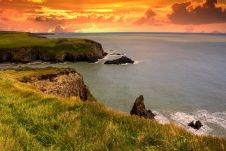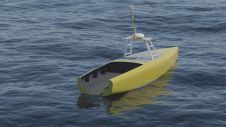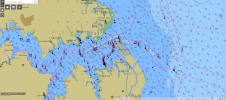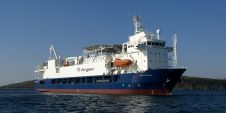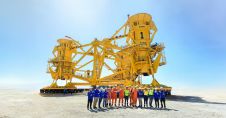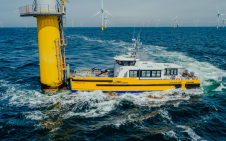Sensing Earth
Medusa Explorations BV
In soil and sediment studies, geophysical mapping is often used as a prerequisite to focus or guide traditional sampling and coring of the locations of interest. This way, synoptic and concise information can be obtained about soil and sediment structure, composition and pollution. This concept has been a driving force behind the technology that Medusa has developed.
Medusa Explorations, founded in 2000 in Groningen (the Netherlands), was a spin-off of the nuclear accelerator lab of the University of Groningen. The company aims to commercialise the results of 15 years of research and development focused on tailoring nuclear sensor technology for geological applications. Given the nuclear and geological background of its founders, it is no surprise that Medusa's focus was initially centred on the application of natural radioactivity as a tracer for soil and sediment properties.
Radiometrics' Advantage
Today, a large part of the work Medusa does still incorporates radiation sensing, albeit often in combination with other geophysical research methods. The founders of the company, Ronald Koomans and Han Limburg, recognised early on the value of radiometrics as a geophysical tool. As opposed to most other geophysical methods, radiometrics can be conducted both in the field and the laboratory. It does not need the ground-truthing often used to relate geophysical data to the soil properties that are being investigated. Instead, radiometrics allows for a one-to-one comparison between field and lab measurements: the radioactivity of samples taken in the field can readily be measured in a laboratory and related to properties such as texture or pollution level. Such relationships yield models that translate radiometric field measurements into soil or sediment information.
Future Information
From its inception at the beginning of the new millennium, Medusa has grown autonomously and has remained profitable. In the past nine years, the company has evolved from a small grouping of technical experts into a provider of geophysical sensing solutions and measurement strategies. Activities range from the development of geophysical measurement systems to data processing and GIS-based mapping. The main focus of the business is on integrating sensor output and turning geophysical data into geological information - it is a goal that has the commitment of 10 employees and several other people more loosely associated with Medusa.
The company still holds strong ties with universities and research institutes in the Netherlands and abroad. These ties are reflected in the numerous student projects that have been conducted and in the participation of the company in research projects. Medusa is, for example, involved in projects with Universities of Delft and Groningen. It also supports an office located at iThemba LABS in Cape Town (South Africa).
Customer Base
Medusa's clients are found among dredging companies, geotechnical engineering firms and governmental bodies. In a broader sense, the company's playing field is civil engineering, mining, and oil and gas. It is currently engaged in numerous ‘wet' and ‘dry' studies, involving large projects to map zinc slags in the Belgian/Dutch area of De Kempen
(in joint effort with engineering companies Fugro Tauw and Witteveen en Bos); landfill reconnaissance studies applying a combination of ground-penetrating radar (GPR), X-ray diffraction (XRF) and radiometrics; and seaborne studies on sediment transport along the Dutch coastline with the Dutch Directorate-General for Public Works and Water Management (Rijkswaterstaat). Medusa provides data acquisition, strategy and instruments, fieldwork and processing for these studies.
Diversification for Growth
As a result of growing demand for measurement systems and software, in early 2008 the team decided to spin off the production of measurement systems and software into a new company called Medusa Systems. As a start-up, Medusa Systems aims to provide smart radiation sensors and software for mining and oil and gas applications. For instance, uranium exploration - boosted by the world's renewed demand for nuclear fuel - calls for modern nuclear measurement techniques to be used in airborne, hand-held or borehole applications. Medusa has developed lightweight radiometric equipment that outperforms standard tools in both weight and data quality; this is opening new markets for small-scale lightweight airborne surveys and improved assessment of ore deposits. Similar developments have led to underwater sensors that are used for sea-floor mapping of parameters such as sediment pollution, sediment composition and nuclear waste.
It is this combination of technical expertise and hands-on fieldwork that creates a platform for new and practical solutions to geo-related measurement problems.
Having the creators and first-time users of new measurement techniques working together under a single roof allows for rapid conversion of the developments into realistic and useable tools. ¸
E-mail: [email protected]

Value staying current with hydrography?
Stay on the map with our expertly curated newsletters.
We provide educational insights, industry updates, and inspiring stories from the world of hydrography to help you learn, grow, and navigate your field with confidence. Don't miss out - subscribe today and ensure you're always informed, educated, and inspired by the latest in hydrographic technology and research.
Choose your newsletter(s)

